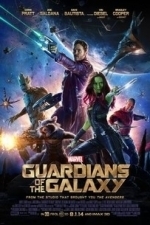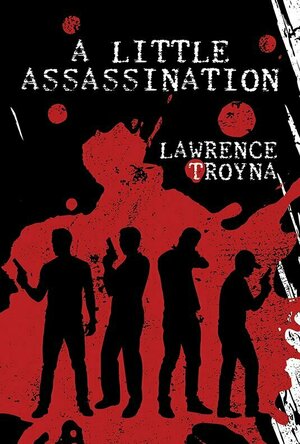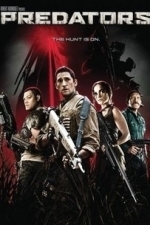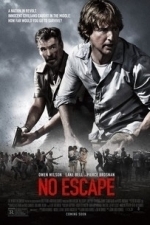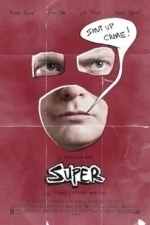Search
Search results
Gareth von Kallenbach (980 KP) rated Fifty Shades Freed (2018) in Movies
Jun 19, 2019
The third and final entry in the “Fifty Shades” series has arrived with the release of “fifty Shades Freed”. The story opens with the wedding of Anastasia (Dakota Johnson), and Christian (Jamie Dornan), and follows their honeymoon in the lavish locales of France.
There getaway is cut short by an act of sabotage at Christian’s company and it soon becomes clear that a person from their past has taken things to a dangerous level which requires Christian to implement security measures for Anastasia and their extended family.
In between the intrigue presented by the threat, we also have numerous scenes of nudity and eroticism as Christian is not going to give up his dominating needs anytime soon.
Combine this with a new revelation that threatens to disrupt the crafted and controlled world he has created for himself and Anastasia; the tensions rise between them making a dangerous and stress-filled situation even more complicated.
While the film does have a better plot and is more engaging than the previous films in the series it is hampered by many of the same issues that hindered the series. The two leads have zero chemistry with one another and their supposedly highly erotic scenes are so routine and by the numbers they lack any form of excitement or real titillation. The film also has this message that behavior that would be considered highly unacceptable in others seems to get a pass for Christian as he is a handsome billionaire. He is a very selfish and controlling individual who demands obedience. While Anastasia does have a strong enough character to stand up to him, she tolerates behavior that would be considered unacceptable by many and seems very quick to give him a pass when lavish gifts and trips are bestowed upon her. I wonder how romantic and acceptable his behavior would be if he was a struggling musician who did not have the financial resources to create fantasies and buy his apologies. I know the film is supposed to be romantic fantasy but this really annoys me as he exhibits much of the behavior that is considered unacceptable and to be avoided at all costs, yet it is all wrapped up in a sweet bow of forgiveness.
That aside the series does seem to be losing steam as the last film earned less than the original film and “Fifty Shades Freed” is tracking to open well below the last film as well. Fans of the series will likely enjoy it as a satisfying finale, but I really expected more from the final moments of the series as after following the characters, the ending seemed very anti-climactic.
http://sknr.net/2018/02/08/fifty-shades-freed/
There getaway is cut short by an act of sabotage at Christian’s company and it soon becomes clear that a person from their past has taken things to a dangerous level which requires Christian to implement security measures for Anastasia and their extended family.
In between the intrigue presented by the threat, we also have numerous scenes of nudity and eroticism as Christian is not going to give up his dominating needs anytime soon.
Combine this with a new revelation that threatens to disrupt the crafted and controlled world he has created for himself and Anastasia; the tensions rise between them making a dangerous and stress-filled situation even more complicated.
While the film does have a better plot and is more engaging than the previous films in the series it is hampered by many of the same issues that hindered the series. The two leads have zero chemistry with one another and their supposedly highly erotic scenes are so routine and by the numbers they lack any form of excitement or real titillation. The film also has this message that behavior that would be considered highly unacceptable in others seems to get a pass for Christian as he is a handsome billionaire. He is a very selfish and controlling individual who demands obedience. While Anastasia does have a strong enough character to stand up to him, she tolerates behavior that would be considered unacceptable by many and seems very quick to give him a pass when lavish gifts and trips are bestowed upon her. I wonder how romantic and acceptable his behavior would be if he was a struggling musician who did not have the financial resources to create fantasies and buy his apologies. I know the film is supposed to be romantic fantasy but this really annoys me as he exhibits much of the behavior that is considered unacceptable and to be avoided at all costs, yet it is all wrapped up in a sweet bow of forgiveness.
That aside the series does seem to be losing steam as the last film earned less than the original film and “Fifty Shades Freed” is tracking to open well below the last film as well. Fans of the series will likely enjoy it as a satisfying finale, but I really expected more from the final moments of the series as after following the characters, the ending seemed very anti-climactic.
http://sknr.net/2018/02/08/fifty-shades-freed/
Hazel (1853 KP) rated A City Dreaming in Books
Dec 14, 2018
My rating: 2.5
<i>I received this book for free through Goodreads First Reads.</i>
“The city never sleeps, but it’s always dreaming.” And, by dreaming, Daniel Polansky clearly means nightmares. <i>A City Dreaming</i> is, for the lack of a better term, an urban fantasy novel. Embracing elements of dystopia and steampunk universes, it is difficult to determine the time period in which it is set. What can be established is that, wherever you are in the world, you are never far away from a monster.
<i>A City Dreaming</i> revolves around a semi-anonymous character known as M. M appears to be some form of magician who wishes he could spend his days listlessly staring into the bottom of his beer glass. Yet with misbehaving creatures and warring goddess living in the city of New York, peace is a rare phenomenon in M’s life. From demons to murders and mind-boggling situations, there is never a dull moment.
Each chapter of <i>A City Dreaming</i> is, in some way, an individual story. Apart from the occasional recurring character, no scenario is ever continued after the chapter concludes. This is initially a cause for confusion. With no clear direction or purpose, it is hard to remain engaged with the author’s imagination.
Readers familiar with contemporary fantasy writers, such as Neil Gaiman, may understand Polansky’s vision – think <i>Neverwhere</i> and <i>American Gods</i> combined, but weirder. M spends the majority of his time either inebriated or on drugs, and, to be frank, it would not be surprising to learn the author was on drugs at the time of writing. Imagine Neil Gaiman on drugs; that is how bizarre this book is.
Despite his penchant for recreational drugs, M is an intelligent character that can humorously talk himself out of impossible situations. However it is often a hopeless ordeal to fathom the process of his intoxicated mind. As a result, <i>A City Dreaming</i> loses its thrill and excitement.
As this is the first Daniel Polansky novel that I have read, I do not know whether this is his usual style of writing or whether it was an attempt at something new. What I did observe was the intelligence hidden behind the excess of expletives and lewd content. Polansky writes with certain aptitude, almost as if he has swallowed a thesaurus.
Fans of Neil Gaiman and Brandon Sanderson may enjoy <i>A City Dreaming</i> more than new readers, since they will already be familiar with the style of bemusing narration. <i>A City Dreaming</i> does not live up to the definition of a novel, however as short, connecting stories it provides the intended entertainment. Almost certainly, this book will be received with mixed reviews; nonetheless it will undoubtedly eventually find its fan base.
<i>I received this book for free through Goodreads First Reads.</i>
“The city never sleeps, but it’s always dreaming.” And, by dreaming, Daniel Polansky clearly means nightmares. <i>A City Dreaming</i> is, for the lack of a better term, an urban fantasy novel. Embracing elements of dystopia and steampunk universes, it is difficult to determine the time period in which it is set. What can be established is that, wherever you are in the world, you are never far away from a monster.
<i>A City Dreaming</i> revolves around a semi-anonymous character known as M. M appears to be some form of magician who wishes he could spend his days listlessly staring into the bottom of his beer glass. Yet with misbehaving creatures and warring goddess living in the city of New York, peace is a rare phenomenon in M’s life. From demons to murders and mind-boggling situations, there is never a dull moment.
Each chapter of <i>A City Dreaming</i> is, in some way, an individual story. Apart from the occasional recurring character, no scenario is ever continued after the chapter concludes. This is initially a cause for confusion. With no clear direction or purpose, it is hard to remain engaged with the author’s imagination.
Readers familiar with contemporary fantasy writers, such as Neil Gaiman, may understand Polansky’s vision – think <i>Neverwhere</i> and <i>American Gods</i> combined, but weirder. M spends the majority of his time either inebriated or on drugs, and, to be frank, it would not be surprising to learn the author was on drugs at the time of writing. Imagine Neil Gaiman on drugs; that is how bizarre this book is.
Despite his penchant for recreational drugs, M is an intelligent character that can humorously talk himself out of impossible situations. However it is often a hopeless ordeal to fathom the process of his intoxicated mind. As a result, <i>A City Dreaming</i> loses its thrill and excitement.
As this is the first Daniel Polansky novel that I have read, I do not know whether this is his usual style of writing or whether it was an attempt at something new. What I did observe was the intelligence hidden behind the excess of expletives and lewd content. Polansky writes with certain aptitude, almost as if he has swallowed a thesaurus.
Fans of Neil Gaiman and Brandon Sanderson may enjoy <i>A City Dreaming</i> more than new readers, since they will already be familiar with the style of bemusing narration. <i>A City Dreaming</i> does not live up to the definition of a novel, however as short, connecting stories it provides the intended entertainment. Almost certainly, this book will be received with mixed reviews; nonetheless it will undoubtedly eventually find its fan base.
Gareth von Kallenbach (980 KP) rated Transformers (2007) in Movies
Aug 14, 2019
Based on the popular line of toys and animated television series from the 80’s. Steven Spielberg and Michael Bay have teamed up to create a mega million FX extravaganza that will delight fans both old and new.
The story involves a group of sentient machines who have battled for centuries in an effort to locate and possess an all powerful object. The kind Autobots led by Optimus Prime, wish to locate and destroy the artifact to keep it from the evil Decepticons who would use the artificat for their own evil purposes, and the deaths of billions.
The film opens with a spectacular battle at a U.S. military installation in the middle east, where one of the Decepticons is attempting to access sensative information from the computer network. Overwhelmed by the attack and subsequent assault on Air Force One, the U.S. government has called in the best and brightest in effort to get to the bottom of the mysterious attacks and the mysterious assailants.
Meanwhile, mild mannered high school student Sam Witicky (Shia LaBeouf), is trying to raise money for a car, and uses his class presentation to hawk his Ebay auctions, unaware that the fate of the universe will soon rest in his hands. After purchasing a used Camaro and giving a ride to the hottest girl in school Mikaela (Megan Fox), Sam thinks his luck is about to change. Little does Sam know that his car is actually one of the advanced scouts for the Autobots, who are attempting to locate one of the items in Sam’s online auction, as it actually contains clues as to the location of the lost artifact.
In short order, the two sides are facing off in several shape changing battles with Sam, Mikaela, and the rest of humanity caught in the balance. Bay and Spielberg have done a great job of combining jaw-dropping FX and action with the humor, charm, and fun that made the original series such a huge success. The audience at my press screening reacted very positively to the film, and there were numerous cheers and rounds of enthusiastic applause throughout the film.
If I had to find fault with the film, it would be that at roughly the 3/4 point, a plot line involving John Turturro as an agent in a secret organization seems forced and unnecessary, as it greatly detracts from the pacing and action of the film. Until this point, the film was very engrossing and moved along at a brisk clip. When the film gets back to the action, it delivers with a solid finale, that while using some of the action film staples, still manages to keep it exciting.
LaBeof works well with Fox and there are numerous supporting roles and cameos that make “Transformers” a pleasant, if silly treat.
The story involves a group of sentient machines who have battled for centuries in an effort to locate and possess an all powerful object. The kind Autobots led by Optimus Prime, wish to locate and destroy the artifact to keep it from the evil Decepticons who would use the artificat for their own evil purposes, and the deaths of billions.
The film opens with a spectacular battle at a U.S. military installation in the middle east, where one of the Decepticons is attempting to access sensative information from the computer network. Overwhelmed by the attack and subsequent assault on Air Force One, the U.S. government has called in the best and brightest in effort to get to the bottom of the mysterious attacks and the mysterious assailants.
Meanwhile, mild mannered high school student Sam Witicky (Shia LaBeouf), is trying to raise money for a car, and uses his class presentation to hawk his Ebay auctions, unaware that the fate of the universe will soon rest in his hands. After purchasing a used Camaro and giving a ride to the hottest girl in school Mikaela (Megan Fox), Sam thinks his luck is about to change. Little does Sam know that his car is actually one of the advanced scouts for the Autobots, who are attempting to locate one of the items in Sam’s online auction, as it actually contains clues as to the location of the lost artifact.
In short order, the two sides are facing off in several shape changing battles with Sam, Mikaela, and the rest of humanity caught in the balance. Bay and Spielberg have done a great job of combining jaw-dropping FX and action with the humor, charm, and fun that made the original series such a huge success. The audience at my press screening reacted very positively to the film, and there were numerous cheers and rounds of enthusiastic applause throughout the film.
If I had to find fault with the film, it would be that at roughly the 3/4 point, a plot line involving John Turturro as an agent in a secret organization seems forced and unnecessary, as it greatly detracts from the pacing and action of the film. Until this point, the film was very engrossing and moved along at a brisk clip. When the film gets back to the action, it delivers with a solid finale, that while using some of the action film staples, still manages to keep it exciting.
LaBeof works well with Fox and there are numerous supporting roles and cameos that make “Transformers” a pleasant, if silly treat.
Phillip McSween (751 KP) rated Guardians of the Galaxy (2014) in Movies
Jan 9, 2020
Epic Indeed
In Guardians of the Galaxy, a group of unlikely heroes for a team to keep a powerful weapon out of the hands of a madman.
Acting: 10
Beginning: 10
Characters: 10
The team is perfect and there’s no disputing it. They’re led by Peter Quill (Chris Pratt) who goes by the name of Starlord. He’s a self-loving womanizer who’s got comebacks for days. He falls in love with Gamora (Zoe Saldana), a green alien badass who is the daughter of a tyrant. Out of the five of them, my personal favorite is Groot (Vin Diesel), a tree being who only says, “I am Groot” yet his good friend Rocket Raccoon (weapons expert and maniac) seems to be the only one that understands the true context of his words. And I could do two more paragraphs on Drax (Dave Bautista) alone. You can’t help but love this team.
Beyond these characters, the movie really excels by bringing in a number of memorable characters that have smaller roles. Ronin (Lee Pace) the villain is a fun bad guy you definitely respect. Meanwhile, the mohawked Yondu is on the hunt for Starlord. Yondu (Michael Rooker) carries around a cool weapon that responds to his whistling. These characters are not only endearing, but experience growth throughout the movie.
Cinematography/Visuals: 10
Conflict: 10
The first ten minutes takes you on sheer adventure and it never lets up from there. The stakes are high (they’re guarding the galaxy for God’s sake!) and the villain is a legit threat. There are space chases, prison breakouts, and more that will keep you entertained for the duration of the movie.
Entertainment Value: 10
Memorability: 10
It’s rare that I clap, laugh, and tear up all in the same movie. I lost count of the number of scenes that could be considered all-time greats in the Marvel Cinematic Universe. I love that the movie dives into finding family int the most unlikely of places.
Pace: 10
Hard to believe the movie was over two hours when I checked the run time. It runs so smoothly and quickly. When it’s over, you feel like you’ve been on a massive adventure in a short amount of time.
Plot: 10
There were a number of places throughout the movie where an average story could have lost its way. Guardians of the Galaxy never misses a beat. It connects all of its dots while reaching out to the extended universe at the same time.
Resolution: 10
Groot…I love you. That’s all I will say.
Overall: 100
Endless adventure. Funny for days. Touching moments. A budding romance. Guardians of the Galaxy is why I love movies.
Acting: 10
Beginning: 10
Characters: 10
The team is perfect and there’s no disputing it. They’re led by Peter Quill (Chris Pratt) who goes by the name of Starlord. He’s a self-loving womanizer who’s got comebacks for days. He falls in love with Gamora (Zoe Saldana), a green alien badass who is the daughter of a tyrant. Out of the five of them, my personal favorite is Groot (Vin Diesel), a tree being who only says, “I am Groot” yet his good friend Rocket Raccoon (weapons expert and maniac) seems to be the only one that understands the true context of his words. And I could do two more paragraphs on Drax (Dave Bautista) alone. You can’t help but love this team.
Beyond these characters, the movie really excels by bringing in a number of memorable characters that have smaller roles. Ronin (Lee Pace) the villain is a fun bad guy you definitely respect. Meanwhile, the mohawked Yondu is on the hunt for Starlord. Yondu (Michael Rooker) carries around a cool weapon that responds to his whistling. These characters are not only endearing, but experience growth throughout the movie.
Cinematography/Visuals: 10
Conflict: 10
The first ten minutes takes you on sheer adventure and it never lets up from there. The stakes are high (they’re guarding the galaxy for God’s sake!) and the villain is a legit threat. There are space chases, prison breakouts, and more that will keep you entertained for the duration of the movie.
Entertainment Value: 10
Memorability: 10
It’s rare that I clap, laugh, and tear up all in the same movie. I lost count of the number of scenes that could be considered all-time greats in the Marvel Cinematic Universe. I love that the movie dives into finding family int the most unlikely of places.
Pace: 10
Hard to believe the movie was over two hours when I checked the run time. It runs so smoothly and quickly. When it’s over, you feel like you’ve been on a massive adventure in a short amount of time.
Plot: 10
There were a number of places throughout the movie where an average story could have lost its way. Guardians of the Galaxy never misses a beat. It connects all of its dots while reaching out to the extended universe at the same time.
Resolution: 10
Groot…I love you. That’s all I will say.
Overall: 100
Endless adventure. Funny for days. Touching moments. A budding romance. Guardians of the Galaxy is why I love movies.
Night Reader Reviews (683 KP) rated A Little Assassination in Books
Feb 29, 2020
Honest Review for Free Copy of Book
A Little Assassination by Lawrence Troyna follows the story of what happens when two assassins are hired to get rid of each other. Too bad it is largely the result of a misunderstanding.
Nero is an assassin who is employed by the British government through a program that is nonexistent. Frequently his job is to remove people who could cause embarrassment to the British government. A sort of lasting damage control so to speak. Unfortunately, no matter how carefully Nero plans his jobs sometimes they go wrong . Usually, that just means a few unintended people get caught in the crossfire, but not this time.
Leon is an assassin as well, but unlike Nero, he works for a crime family. His jobs are usually fairly similar to Nero’s except he doesn't secretly work for the government. This time when Leon is called in his order is to eliminate anyone responsible for the bomb that went off inside one of the family’s drug manufacturing plants. When it is discovered that the plant was accidental collateral damage from a British government hit Leon is supposed to be called off. When this does not happen Leon and Nero’s groups end up fighting head to head for a short while until Leon gives up by his group completely. Now it's an all-out manhunt, but the prey is also a hunter.
Honestly, I am not sure what to say. There really wasn’t much that stood out to me about this book. The most surprising (and in this case the best) part of the book was finding out who the leak on Nero’s side was. There were multiple things about this book that I didn’t like. There was a Mr. Tillotson and a Mr. Trenchard on opposite sides, which was mildly confusing. I was also surprised to find that the plot moves steadily yet to me it still seamed dragging.
The language can be a little rough and (as one would expect from a book about assassins) there is a lot of violence. With that being said the book is best suited for young adults and adults alike. I rate this book 1 out of 4. I had much higher hopes for this book than what it delivered. It was fairly dry and predictable. There really wasn’t much about this book that impressed me aside from who the leak was.
https://www.facebook.com/nightreaderreviews/
https://smashbomb.com/nightreader
https://nightreaderreviews.blogspot.com/
Nero is an assassin who is employed by the British government through a program that is nonexistent. Frequently his job is to remove people who could cause embarrassment to the British government. A sort of lasting damage control so to speak. Unfortunately, no matter how carefully Nero plans his jobs sometimes they go wrong . Usually, that just means a few unintended people get caught in the crossfire, but not this time.
Leon is an assassin as well, but unlike Nero, he works for a crime family. His jobs are usually fairly similar to Nero’s except he doesn't secretly work for the government. This time when Leon is called in his order is to eliminate anyone responsible for the bomb that went off inside one of the family’s drug manufacturing plants. When it is discovered that the plant was accidental collateral damage from a British government hit Leon is supposed to be called off. When this does not happen Leon and Nero’s groups end up fighting head to head for a short while until Leon gives up by his group completely. Now it's an all-out manhunt, but the prey is also a hunter.
Honestly, I am not sure what to say. There really wasn’t much that stood out to me about this book. The most surprising (and in this case the best) part of the book was finding out who the leak on Nero’s side was. There were multiple things about this book that I didn’t like. There was a Mr. Tillotson and a Mr. Trenchard on opposite sides, which was mildly confusing. I was also surprised to find that the plot moves steadily yet to me it still seamed dragging.
The language can be a little rough and (as one would expect from a book about assassins) there is a lot of violence. With that being said the book is best suited for young adults and adults alike. I rate this book 1 out of 4. I had much higher hopes for this book than what it delivered. It was fairly dry and predictable. There really wasn’t much about this book that impressed me aside from who the leak was.
https://www.facebook.com/nightreaderreviews/
https://smashbomb.com/nightreader
https://nightreaderreviews.blogspot.com/
JT (287 KP) rated Predators (2010) in Movies
Mar 10, 2020
Fans of the original Predator will no doubt have been excited to see the trailers for Predators, a script pulled from a filing cabinet in 1994 and given a 2010 make over by Robert Rodriguez, who produces, with Nimród Antal directing.
It was always going to be hard to top Schwarzenegger’s 1987 hit; John McTiernan had little special effects to work with but delivered an action/sci-fi masterpiece with a cast of mercenaries. When the sequel came along Schwarzenegger wanted no part of it, and so it was up to Danny Glover (I’m still getting to old for this shit) to battle on home turf, unsuccessfully in many people’s eyes.
In 2010 we’re back in the jungle only this is no ordinary jungle, this is home field advantage for the Predators. Again, a bunch of unknowns from different specially selected backgrounds are dropped in together to face a new breed of Predator, seemingly engaged in their own tribal turf war.
The story follows some similar paths to the original, macho heroes must work together to fight back, while at the same time avoid being picked off one at a time. The script is disjointed with no prior background as to why these bunch of cut throats have been pooled together, or who is behind it all.
That said those of us who can remember back as far as 1987 will enjoy a homage to the original with scenes like a spectacular waterfall jump, a Yazuka Vs Predator battle which gives us an insight as to what might have happened when Billy stayed behind on the bridge with nothing more than a huge knife for protection. All that and the immortal line “Kill me I’m here!”
Adrien Brody may not seem like your stereotypical action hero but he does do a half decent job, following along the action hero code of A) getting some serious gym time, B) lowering voice to a low growl and C) not giving a shit, then coming back and giving a shit!
The others, well they’re no Dutch, Mac, Billy or Zane but they are a new breed. There is the quiet and yet deadly Yakuza (Louis Ozawa Changchien), who is dressed for the most part in a smart grey suit and performs the sword-moves in a well choreographed human vs. Predator duel.
The rest are walking talking archetypal thugs, a Russian beef cake (Oleg Taktarov), a death row serial murderer (Walton Goggins), an African Death Squad killer (Mahershalalhashbaz Ali) and a cocaine cartel hatchet man (the legend that is Danny Trejo). There is also a rather pointless guest appearance which might lead us into a false sense of security as it is all but cut short, shame!
It was always going to be hard to top Schwarzenegger’s 1987 hit; John McTiernan had little special effects to work with but delivered an action/sci-fi masterpiece with a cast of mercenaries. When the sequel came along Schwarzenegger wanted no part of it, and so it was up to Danny Glover (I’m still getting to old for this shit) to battle on home turf, unsuccessfully in many people’s eyes.
In 2010 we’re back in the jungle only this is no ordinary jungle, this is home field advantage for the Predators. Again, a bunch of unknowns from different specially selected backgrounds are dropped in together to face a new breed of Predator, seemingly engaged in their own tribal turf war.
The story follows some similar paths to the original, macho heroes must work together to fight back, while at the same time avoid being picked off one at a time. The script is disjointed with no prior background as to why these bunch of cut throats have been pooled together, or who is behind it all.
That said those of us who can remember back as far as 1987 will enjoy a homage to the original with scenes like a spectacular waterfall jump, a Yazuka Vs Predator battle which gives us an insight as to what might have happened when Billy stayed behind on the bridge with nothing more than a huge knife for protection. All that and the immortal line “Kill me I’m here!”
Adrien Brody may not seem like your stereotypical action hero but he does do a half decent job, following along the action hero code of A) getting some serious gym time, B) lowering voice to a low growl and C) not giving a shit, then coming back and giving a shit!
The others, well they’re no Dutch, Mac, Billy or Zane but they are a new breed. There is the quiet and yet deadly Yakuza (Louis Ozawa Changchien), who is dressed for the most part in a smart grey suit and performs the sword-moves in a well choreographed human vs. Predator duel.
The rest are walking talking archetypal thugs, a Russian beef cake (Oleg Taktarov), a death row serial murderer (Walton Goggins), an African Death Squad killer (Mahershalalhashbaz Ali) and a cocaine cartel hatchet man (the legend that is Danny Trejo). There is also a rather pointless guest appearance which might lead us into a false sense of security as it is all but cut short, shame!
Gareth von Kallenbach (980 KP) rated No Escape (2015) in Movies
Aug 6, 2019
Full disclosure…I am not a fan of Owen Wilson. In fact, I have down right loathed him since I first saw him in Armageddon. In my opinion, he always plays an annoying, somewhat exaggerated and not very funny character. To make things worse, No Escape is a non-comedy, non-quirky, straight man Owen Wilson film. Seems like a terrible idea. Still, the trailer intrigued me because I wanted to see if Wilson had any range to be a “normal action” character for once or would he continue to live up to my low expectations of him.
Surprisingly, I enjoyed him in this performance greatly. Wilson plays a father who uproots his wife Annie (Lake Bell) and their two little girls and moves them to Southeast Asia to work on a project to bring clean drinking water to the country and provide a better life for his family. However shortly after arrival, the family finds themselves in the middle of a violent political uprising they do not understand nor have any idea why it is happening and must somehow find sanctuary and escape this foreign city where Americans are being executed on sight. The film is intense. As soon as the coup begins, we are taken on a ride of constant tension and emotion, broken up with quiet moments where Wilson uses “dad humor” to comfort his family. Wilson shines in these moments because his “lame Dad humor” is not only believable, but his demeanor throughout the film is realistic and loving. His chemistry with his cast mates is stellar as the family all deliver solid performances and you can believe they are an actual family.
As they are moving through the city they come across a familiar face in Pierce Brosnan who plays some kind of mercenary ex-agent type. Brosnan’s screen time is short but he steals every scene he is in. He also gives an explanation, though simple, of what is going on and how the family can find safety. Critics of this film may fault it for glossing over a real world issue of western colonialism and no attempt to humanize the plight of the locals, however for me at least, this film isn’t trying to tell a giant story, but rather a far simpler one which is about family. Additionally, the trailers for this film present it as more of an action film, which it is not.
In the end we are left with a frightening atmosphere where we constantly might ask ourselves what we would do in that situation. The strength of this film is the family dynamic and the strong performances that give them life. Though the film mostly ignores a real world issue, it delivers a thrilling fast paced ride from almost start to finish.
Surprisingly, I enjoyed him in this performance greatly. Wilson plays a father who uproots his wife Annie (Lake Bell) and their two little girls and moves them to Southeast Asia to work on a project to bring clean drinking water to the country and provide a better life for his family. However shortly after arrival, the family finds themselves in the middle of a violent political uprising they do not understand nor have any idea why it is happening and must somehow find sanctuary and escape this foreign city where Americans are being executed on sight. The film is intense. As soon as the coup begins, we are taken on a ride of constant tension and emotion, broken up with quiet moments where Wilson uses “dad humor” to comfort his family. Wilson shines in these moments because his “lame Dad humor” is not only believable, but his demeanor throughout the film is realistic and loving. His chemistry with his cast mates is stellar as the family all deliver solid performances and you can believe they are an actual family.
As they are moving through the city they come across a familiar face in Pierce Brosnan who plays some kind of mercenary ex-agent type. Brosnan’s screen time is short but he steals every scene he is in. He also gives an explanation, though simple, of what is going on and how the family can find safety. Critics of this film may fault it for glossing over a real world issue of western colonialism and no attempt to humanize the plight of the locals, however for me at least, this film isn’t trying to tell a giant story, but rather a far simpler one which is about family. Additionally, the trailers for this film present it as more of an action film, which it is not.
In the end we are left with a frightening atmosphere where we constantly might ask ourselves what we would do in that situation. The strength of this film is the family dynamic and the strong performances that give them life. Though the film mostly ignores a real world issue, it delivers a thrilling fast paced ride from almost start to finish.
Gareth von Kallenbach (980 KP) rated Super (2011) in Movies
Aug 7, 2019
When I first heard about Super, written and directed by James Gunn, my first thought was “Dwight (from The Office) will be a superhero?” However what I saw on the screen was anything but Dwight, it was 75% awesome and 25% “I can’t believe they did that!”
The film begins with Frank (excellently played by Rainn Wilson) happily married to Sarah (Liv Tyler) who is a recovering drug addict. The happiness is shattered when Sarah begins using again, thanks to Jacques the drug dealer (Kevin Bacon) and then one day she disappears. Frank searches for Sarah and eventually finds her under the control of Jacques. Unable to get her away from Jacques, Frank goes to the police for help. Unfortunately because Sarah left on her own accord, no law has been broken (except for the drug stuff) so they are unable to help him.
Frank tries to move on, but without Sarah life seems meaningless. Then in his darkest hour he has a vision of The Holy Avenger (Nathan Fillion). Heeding the vision, Frank becomes The Crimson Bolt, pledges to fight crime and to save Sarah. There is just one small problem – Frank has no idea how to be a superhero. Research is needed, so off to the comic book store he goes, of course, and there he meets Libby (Ellen Page). Libby advises him which comics to read that have superheroes who do not have powers. Armed with this knowledge, The Crimson Bolt officially begins fighting crime in the most unusual of ways and not too long after, Libby becomes Boltie, his trusted, sexy sidekick.
This very entertaining, action-filled, dark comedy has more twists and turns than a game of Chutes and Ladders, and it will keep you glued to the screen until the end. Will they save the city from villainy? Will they save Sarah’s bacon? (Sorry, with Kevin Bacon playing the bad guy I couldn’t resist.)
Super has a different take on the superhero genre than what I’ve seen in past movies. Only Rainn Wilson could have properly portrayed the uniqueness that is Frank/Crimson Bolt and the same goes for Ellen Page in regards to Libby/Boltie (possibly the best sidekick ever). To make a long review short, let me sum up this way, everyone in the movie no matter the length of their part did an amazing job in their role. With that said, my only wish was that the story would have allowed for more screen time for Gregg Henry (Detective John Felkner) and a musical number for Fillion’s Holy Avenger. if you liked Fillion as Captain Hammer in Dr. Horrible’s Singalong Blog, then you’ll love him in this role. But those things would have most likely thrown off the perfect balance of action, humor and character interaction that made this movie so enjoyable.
The film begins with Frank (excellently played by Rainn Wilson) happily married to Sarah (Liv Tyler) who is a recovering drug addict. The happiness is shattered when Sarah begins using again, thanks to Jacques the drug dealer (Kevin Bacon) and then one day she disappears. Frank searches for Sarah and eventually finds her under the control of Jacques. Unable to get her away from Jacques, Frank goes to the police for help. Unfortunately because Sarah left on her own accord, no law has been broken (except for the drug stuff) so they are unable to help him.
Frank tries to move on, but without Sarah life seems meaningless. Then in his darkest hour he has a vision of The Holy Avenger (Nathan Fillion). Heeding the vision, Frank becomes The Crimson Bolt, pledges to fight crime and to save Sarah. There is just one small problem – Frank has no idea how to be a superhero. Research is needed, so off to the comic book store he goes, of course, and there he meets Libby (Ellen Page). Libby advises him which comics to read that have superheroes who do not have powers. Armed with this knowledge, The Crimson Bolt officially begins fighting crime in the most unusual of ways and not too long after, Libby becomes Boltie, his trusted, sexy sidekick.
This very entertaining, action-filled, dark comedy has more twists and turns than a game of Chutes and Ladders, and it will keep you glued to the screen until the end. Will they save the city from villainy? Will they save Sarah’s bacon? (Sorry, with Kevin Bacon playing the bad guy I couldn’t resist.)
Super has a different take on the superhero genre than what I’ve seen in past movies. Only Rainn Wilson could have properly portrayed the uniqueness that is Frank/Crimson Bolt and the same goes for Ellen Page in regards to Libby/Boltie (possibly the best sidekick ever). To make a long review short, let me sum up this way, everyone in the movie no matter the length of their part did an amazing job in their role. With that said, my only wish was that the story would have allowed for more screen time for Gregg Henry (Detective John Felkner) and a musical number for Fillion’s Holy Avenger. if you liked Fillion as Captain Hammer in Dr. Horrible’s Singalong Blog, then you’ll love him in this role. But those things would have most likely thrown off the perfect balance of action, humor and character interaction that made this movie so enjoyable.

Otogi: Spirit Agents
Games, Entertainment and Stickers
App
"Help wanted! Calling everyone with spirit essence! Become a spirit agent today!" Um… I just have...
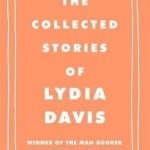
The Collected Stories of Lydia Davis
Book
The Collected Stories of Lydia Davis is the complete collection of short fiction from the...



